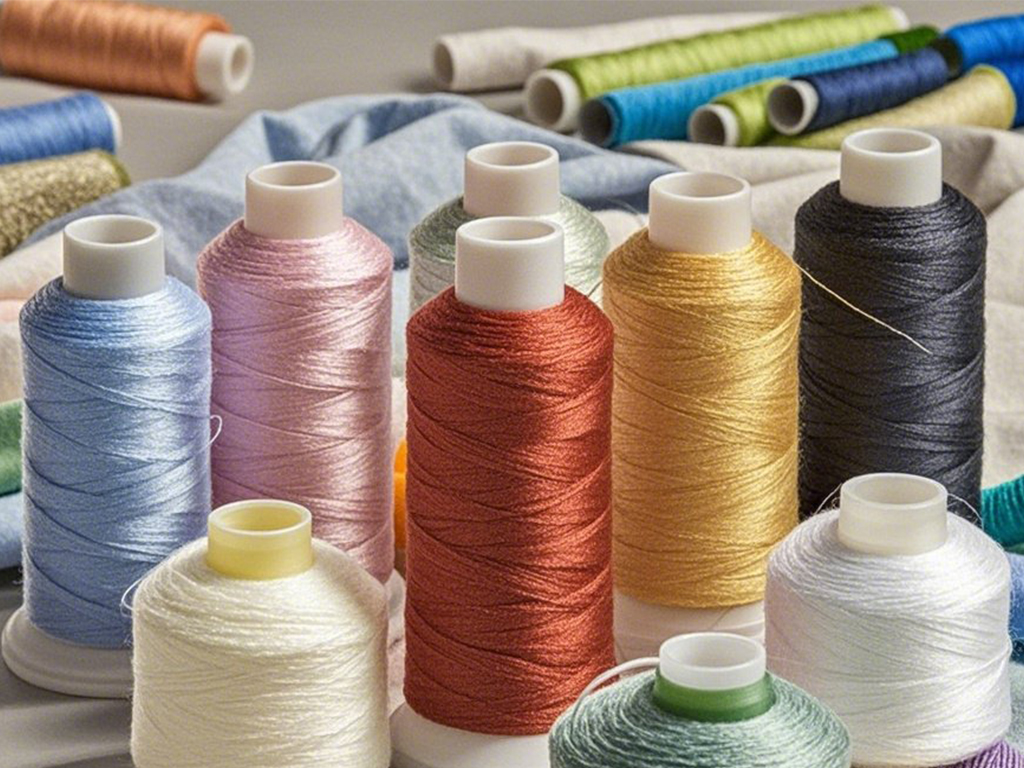Polyester sewing thread is the thread required for sewing garments, and it is a commonly used thread in stitching. Sewing threads can be classified into three major categories according to raw materials: fiber, synthetic fiber, and mixed fiber. With the development of the polyester industry, more and more sewing threads use pure polyester fiber as their raw material. Polyester fiber is a high-quality synthetic fiber, and the resulting sewing thread has high strength, second only to nylon thread among various sewing threads, and it does not reduce strength when wet.

The shrinkage rate of polyester sewing thread is very small, with shrinkage less than 1% after proper setting, ensuring that the stitching remains neat and attractive without wrinkling. It has a low moisture regain rate and excellent resistance to high temperatures, low temperatures, light, and water. Therefore, polyester thread is the most widely used variety, replacing cotton sewing thread in many cases. Polyester thread is widely used for sewing garments made of cotton fabrics, chemical fiber fabrics, and blended fabrics, and can also be used for sewing knitwear. Special polyester thread is also an excellent thread for the leather industry.
In short, polyester thread is widely used in the sewing of cotton textiles, chemical fiber, and blended fabrics due to its high strength, good abrasion resistance, low shrinkage, good moisture absorption, heat resistance, corrosion resistance, and resistance to mold and insect damage. Additionally, it has advantages such as complete color range, good color fastness, no fading, no discoloration, and sun resistance.
Polyester sewing thread is popular for its high strength, abrasion resistance, chemical corrosion resistance, and low shrinkage. It can be classified into various types based on its characteristics, uses, and manufacturing processes:
Common Polyester Sewing Thread: This is the most common type, suitable for general household and industrial sewing.
Elastic Polyester Sewing Thread: This thread has some elasticity, making it suitable for elastic fabrics like sportswear.
High-Strength Polyester Sewing Thread: Specially reinforced for applications requiring extra strength, such as shoe making and leather products.
Embroidery Polyester Sewing Thread: This thread usually comes in rich colors and is used for embroidery and decorative sewing.
Transparent Polyester Sewing Thread: Mainly used in situations where the original appearance of the fabric needs to be maintained after sewing.
Waterproof Polyester Sewing Thread: Suitable for outdoor products requiring waterproof functionality.
Heat-Resistant Polyester Sewing Thread: Suitable for sewing in high-temperature environments such as automotive interiors.
Coated Polyester Sewing Thread: The surface of the thread has a special coating, providing additional abrasion resistance or waterproofing.
Color-Changing Polyester Sewing Thread: This thread changes color under specific conditions, often used for safety or specific markings.
Eco-Friendly Polyester Sewing Thread: Made from recyclable materials and has a smaller environmental impact.
When choosing polyester sewing thread, the specific needs of the sewing project, such as the type of fabric, the specifications of the sewing machine, and the purpose of sewing, should be considered to decide which type of thread to use. Different types of polyester sewing threads vary in strength, color, heat resistance, elasticity, etc., so the most suitable thread should be selected based on actual application needs.
As one of the professional polyester sewing thread China suppliers, JINZE provides various types, colors and thickness of threads, including spun polyester sewing threads, poly poly core sewing thread and recycled polyester sewing thread. Looking forward to cooperate with you!